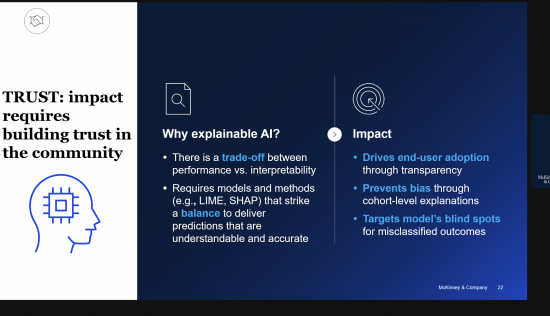Artificial intelligence gets a lot of buzz as a leading-edge technology in healthcare. But it still has a long way to go when it comes to adoption, with only 20% of physicians saying AI has changed the way they practice medicine, according to a recent survey.
In fact, the majority of physicians are anxious or uncomfortable with AI, according to Medscape’s survey of 1,500 doctors across Europe, Latin America and the U.S. Physicians in the U.S. voiced the most skepticism (49%), while 35% of physicians in Europe said they are uncomfortable with AI and 30% of physicians in Latin America said the same.
The survey also found that physicians are more comfortable with using AI-powered tools in their personal lives—50% of U.S. physicians use Google Home, Alexa or something similar—but only 7% use it for professional purposes. Adoption numbers are even lower in Europe and Latin America, where more than 75% of doctors don’t use voice-controlled technology for any reason.
Only 19% of physicians said they would be comfortable using voice technology during a patient consultation, and nearly 1 in 3 physicians believe their role could be threatened by AI-powered software. Still, there is some interest from physicians in AI technology, with 70% of responding doctors indicating they believe it could make their decisions more accurate, according to the survey results,. Two-thirds of physicians said they are likely to use AI in the future if it is better than humans at some diagnostic tasks, and 68% believe AI-powered software will allow them to spend more time on other important tasks. But less than half (44%) think AI will be as good or better than human physicians at diagnostic tasks.
Physicians expressed interest in using AI to look up drug information (54%), check for drug interactions (53%) and look up treatment guidelines (52%).
The survey results also indicated that physicians are concerned about how these AI tools will handle sensitive patient information as well as potential bias, and doctors seem particularly distrustful of AI-powered software offered by pharmaceutical companies.
All of this adds up to the reality that even though AI will have a transformational impact on healthcare, its adoption will take a long time and will be rocky, at best. Given the explosion of data, such as genetics, proteomics, social determinants of health data, biometrics, and more, AI will be absolutely necessary to incorporate all of this data into disease diagnosis and management. Human brain can not incorporate all of this data at the point of care to come up with the answers. However, it will take time to establish its benefits in the real-world, figure out its impact on the economics of healthcare, and very importantly, its impact on physician incomes and jobs.
Those who believe physicians can be bypassed if these powerful technologies are better for people may not realize the power of organized medicine in shaping the future of technologies in healthcare in such a way that does not negatively impact physician incomes or health system economics. Now, those are the types of lobbies that you don’t want to mess with. Bill and Hillary Clinton can tell you all about it!!!






